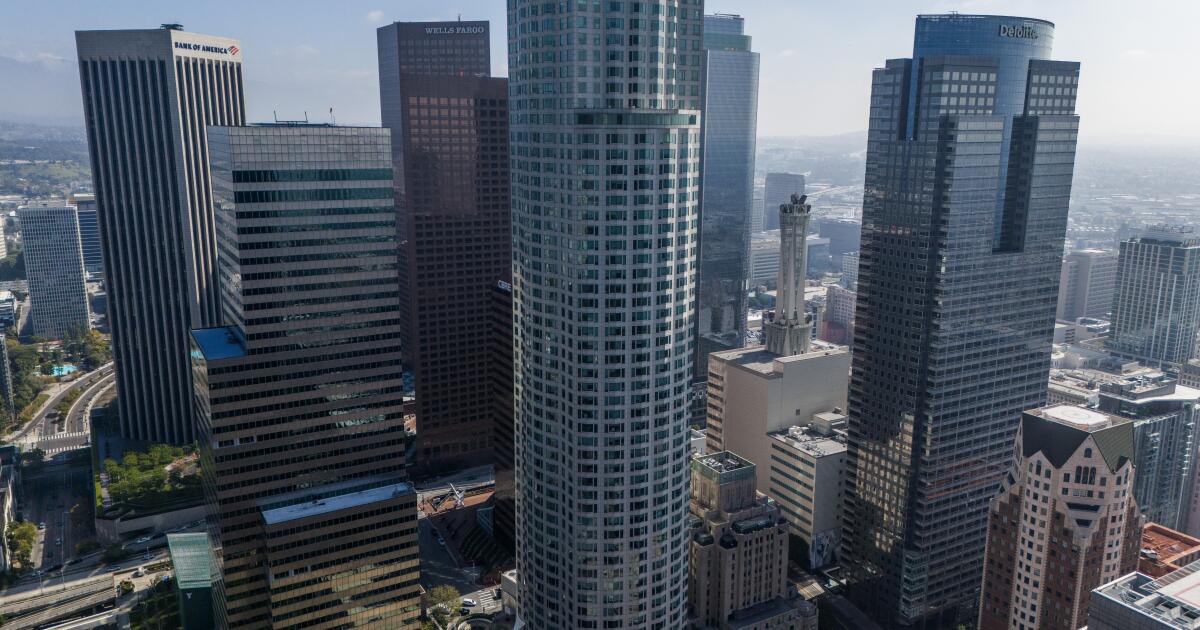Dhaka: Hindu community leader bangladesh advocating the formation of a dedicated political party, reflecting a call political representation To protect their rights and ensure their safety. Hindu leader of Bangladesh Hindu Buddhist Christian Unity Council (BHBCOP) and other groups are now discussing the possibility of establishing a separate political party Or demanding reserved parliamentary seats.
“At present there are three opinions which are being discussed in detail: first, to go back to the separate electoral system of 1954; second, to establish a separate political party for Hindus; and third, to reserve seats in Parliament for minorities. Do,” said Kajal, BHBCOP presidium member. Debnath told PTI.
This discussion took place after the violence against the Hindu community following the resignation of Awami League Leader Sheikh Hasina became Prime Minister on 5 August following the student movement.
Debnath said data collected by BHBCOP points to 2,010 incidents of attacks on the Hindu community, ranging from murders and physical attacks to sexual assaults, attacks on temples and destruction of property.
There are no official figures from the Bangladesh government on the number of attacks.
Ranjan Karmakar, a leader of the Hindu community, said, “Discussion and exchange of views regarding forming a political party is at the top of our priority. Although nothing has been finalised, let’s see how it pans out.”
“The proposed political party could serve as an important vehicle for change, ensuring that their concerns are represented and addressed,” he said.
Historically, Hindus constituted about 22 percent of Bangladesh’s population during the 1971 liberation war, but today they represent only about 8 percent.
Community members attributed this decline in the Hindu population to socio-political marginalization and sporadic violence, intensifying the urgency of political mobilization.
However, Debnath said that creating a party for Hindus may not work in favor of the minorities, as it may lead to division of secular votes and not victory.
“The Hindu population is scattered all over Bangladesh. In some areas, it constitutes 35 per cent of the voters, while in most places it is 6-8 per cent of the voters. The Hindu leaders of the Awami League who won in the last election are dependent on Hindu votes and other communities. Got votes from Awami League supporters.”
“But if the same person contests elections as a Hindu party candidate, he may not be able to garner votes from other communities. Therefore, the goal of sending representatives to Parliament will not be achieved,” he said.
There are differing opinions within the community on whether to form a separate political party or cooperate with existing secular parties.
“We must focus on our common goals. Only by uniting can we make a significant impact. This is the moment for us to move forward and reclaim our place in the political landscape. But since a large section of Hindus are against the Awami League We are also identified with, so we are also facing attacks,” said Gobinda Chandra Pramanik, general secretary of Bangladesh Jatiya Hindu Mohjot.
Debnath said that reserving parliamentary seats for women in the same way as they are reserved could be a solution.
The demand for reservations is not new, as the government has previously allocated seats for women in both national and local politics, and Hindu community leaders argue that equal reservations for Hindus would give them a platform to influence those policies. Which directly affects their security and rights.
He said, “If we have representatives in parliament, they can actively advocate for our safety, security and cultural preservation. Without representation, we risk being forgotten in political discussions, let alone living in a hostile environment.” Has been left for.”
Another presidium member of the BHBCOP, who did not want to be named, said political parties – whether the Awami League, the Bangladesh Nationalist Party (BNP), or the Jatiya Party – have failed the Hindu minorities in the country since their birth. Have done. Liberation war of 1971.
He said, “Since 1971, the minorities have failed to participate in the political discourse of the country. The main reason for this is that the minorities have been dependent on the mainstream political parties, which, apart from contacting us during elections, have repeatedly Has failed us.”
Historically, the Awami League, known for its secular stance, enjoyed substantial support from Hindus, but the sudden power vacuum after Hasina’s ouster led to a wave of violence that destroyed businesses of the minority community. Properties were destroyed and temples desecrated, leaving many people homeless. The community is feeling unsafe and deprived.
Muhammad Yunus, the chief advisor to the interim government, downplayed the seriousness of the violence against Hindus, describing it as politically motivated rather than communal and suggesting that the attacks stemmed from political turmoil due to the perception that most Hindus were loyal to the now ousted Awami League. Support the government. ,
“This issue has many dimensions. When the country went through turmoil after the atrocities of (Sheikh) Hasina and the Awami League, the people who were with her , They also faced attacks.”
Yunus described the attacks as “political in nature and not communal”.
After assuming charge on August 8, BHBCOP leaders had met Yunus and submitted a memorandum requesting him to ensure that attacks on Hindus stop.
Political analyst Zillur Rahman expressed skepticism about the number of attacks on Hindus given by BHBCOP, but said that the proposal for reservation of seats in Parliament could be discussed.
“Right now the process of reconsidering our Constitution is going on, so this idea of allotment of parliamentary seats for minorities can be discussed and debated. But the idea of forming a new political party will not be possible in the binary of BNP and Awami League,” he said.
















